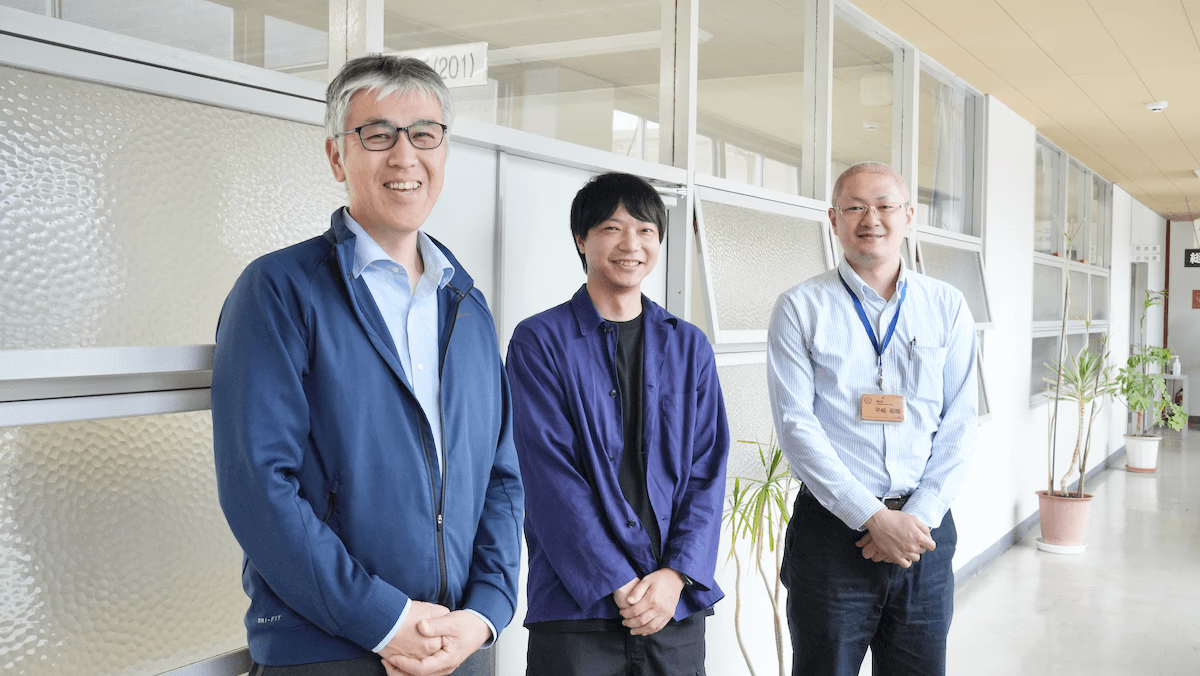モノサスがサテライトオフィスを置く徳島・神山町では今、フロントエンドエンジニア・角南大雅が「地域活性化起業人」として、神山町役場のみなさんと一緒に業務改善DXに取り組んでいます。
今回、神山町役場の杼谷学さん、平嶋基曜(もとあき)さん、角南による座談会を開催。神山町役場のDXがはじまった背景、地域活性化起業人の役割、現在進んでいる窓口業務改善DXについてお話を伺いました(以下、敬称略)。
座談会参加者
杼谷学さん(神山町総務課課長補佐)
神山町出身。2010年の総合計画づくり、2016年には第一期創生戦略「まちを将来世代につなぐプロジェクト」の策定に関わり、役場から出向するかたちで神山つなぐ公社代表理事を務める。2021年に総務課に戻り、地域アプリ「さあ・くる」の開発を進める。2023年からはDXも担当。
平嶋基曜さん(神山町税務保険課主事)
徳島市出身。2020年、総務課企画調整係で第二期創生戦略「まちを将来世代につなぐプロジェクト」の策定に関わる。神山まるごと高専の開校を役場側からサポート。ふるさと納税や窓口業務改善のDXを進めてきた。2023年春税務保険課に異動。
角南大雅(フロントエンドエンジニア、神山町地域活性化起業人)
徳島県出身。2016年、第一期神山ものさす塾への参加をきっかけにモノサスに入社。代々木オフィスを経て、2021年神山に移住し、ほぼ同時に地域活性化起業人として役場に常駐するように。
*地域活性化起業人制度
地方公共団体が、3大都市圏に所在する民間企業などの社員を、6月以上3年以内の期間、継続して受け入れ、そのノウハウや知見を生かして地域独自の魅力や価値の向上、地域経済の活性化、安心・安全につながる業務に従事してもらう制度。
DXの前段階となった「10年後の役場を考える会」
―― はじめに、神山町役場(以下、役場)が地域活性化起業人を受け入れてDXを進めることになった経緯と背景について教えてください。
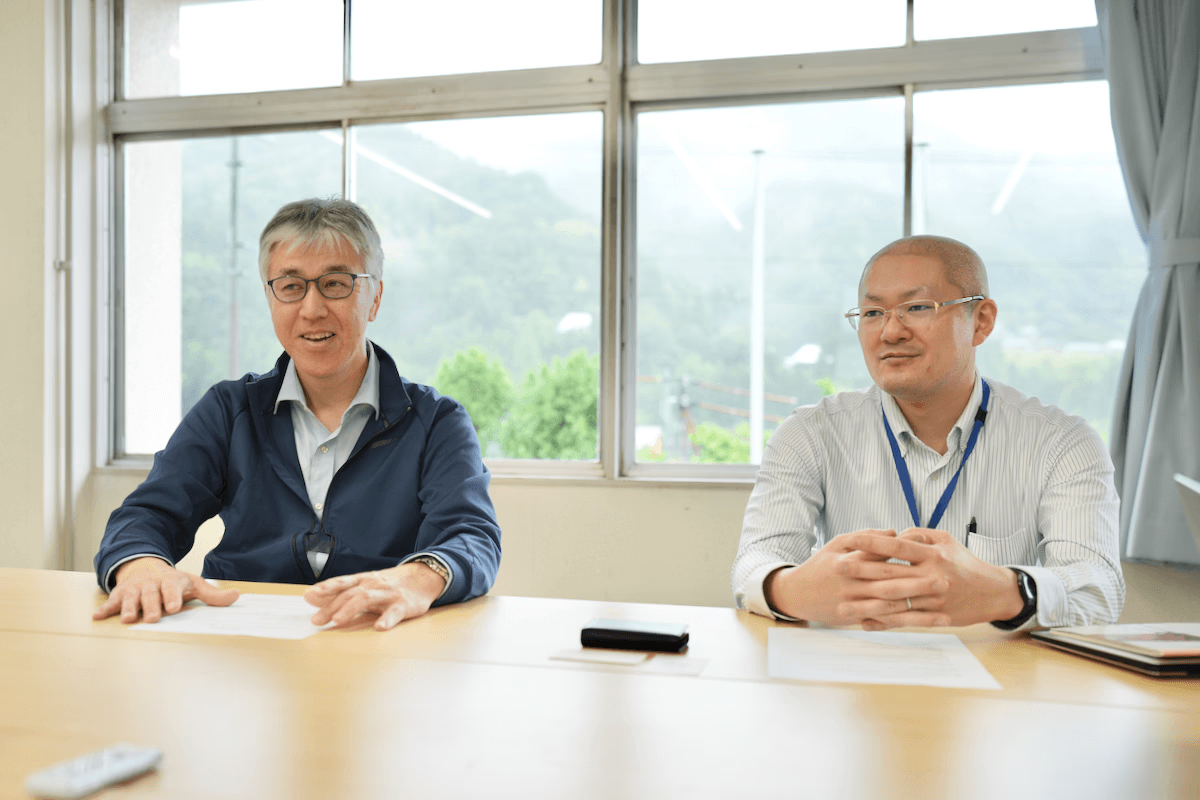
神山町役場 杼谷学さん(左)、平島基曜さん(右)
杼谷:神山町では、公務員の2040年問題を背景に、2018年から45歳前後の役場有志による「10年後の役場を考える会(以下、10役会)」を設け、役場業務の見直しおよび改善に関する施策を検討していました。解決すべき課題はたくさんあるけれど、予算も厳しいなかで人口も職員数も減っていて、人の限界がまちの限界になっている。そこで、専門的な知識をもつ人に役場内部に入ってもらい、“右腕人材”として一緒に仕事できるといいんじゃないかというアイデアが出ていたんです。
役場は本当に文書の世界です。「ペーパーレス化やIT関連の困りごとを相談できる人がいるといいのではないか」と考えていたら、2021年度に、総務省が地域おこし企業人制度をリニューアルして地域活性化起業人制度を創設しました。以前、モノサスの本橋さんに地域包括支援センターで、高齢者の見守りをしたときに音声(電話)で報告すると文字に変換できる「見守りコール」をつくってもらった経緯もあり、林さん(モノサス代表)に相談すると「ちょうど角南さんが神山に引っ越してくる」と伺ったので、地域活性化起業人として来ていただくことになりました。
―― 最初はどんなお仕事からはじまったのですか?
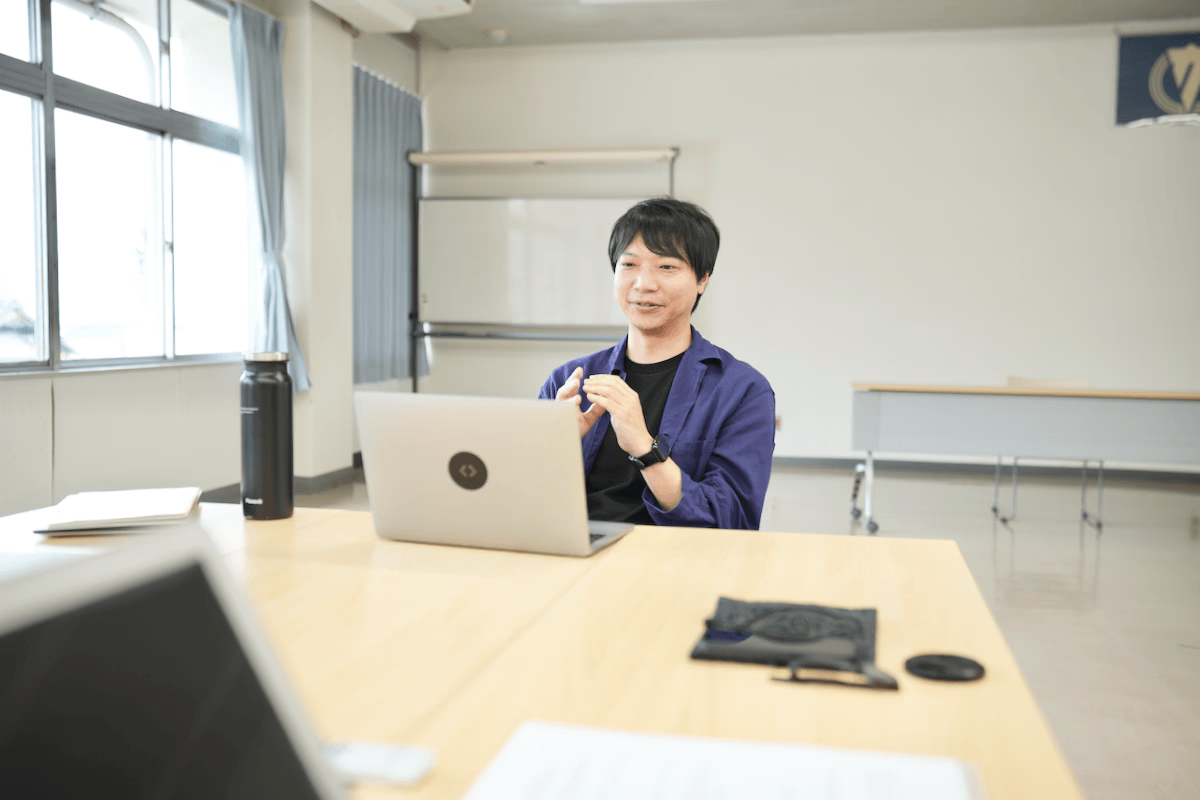
モノサス 角南大雅
角南:民間企業の案件では、クライアント側の「やりたいこと」は決まっていて、それをヒアリングするところからはじまります。ところが役場では、「やりたいこと」の一歩手前の部分、まずは現状をヒアリングして改善方法を提案する必要がありました。その結果、最初に取り組んだのは「ふるさと納税の台帳管理の効率化」でした。
平嶋:ふるさと納税って入り口がたくさんあるんです。ふるさと納税のポータルサイト「ふるさとチョイス」、役場独自の受付窓口、インターネットを使えない方は紙の申請書で申し込まれます。以前は、複数の窓口からの申込データをエクセルに手入力して一元化していました。角南さんは「オンライン申込についてはkintoneで一元化できる」と提案してくれたので、まずはそこを中心に進めていただきました。
企画調整係は仕事が多いうえに、新しい仕事がどんどん降ってくる部署です。入力の手間がなくなるだけでずいぶん楽になりましたし、他の業務に時間を使えるようになりました。また、成功体験がひとつできたことで「他にもルーティンワークを自動化できるんじゃないか」と考えられるようになりました。
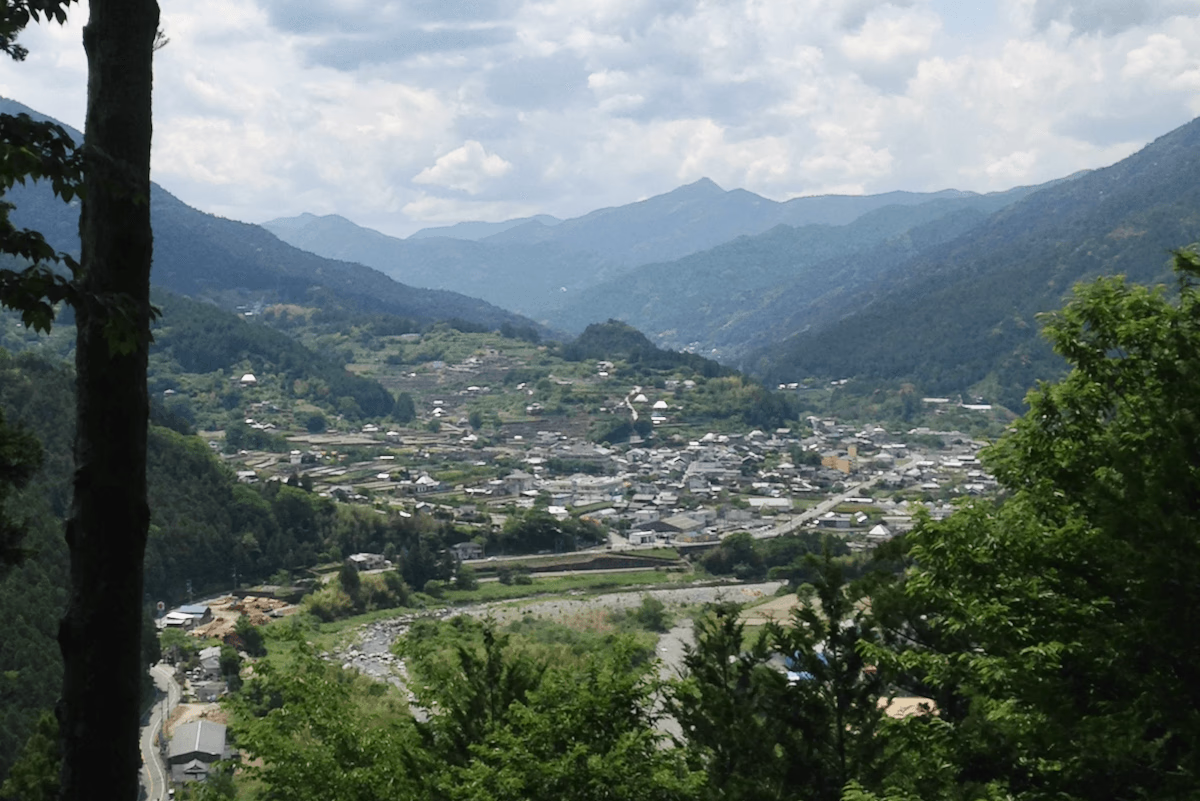
鮎喰川に沿って山間に広がる神山町
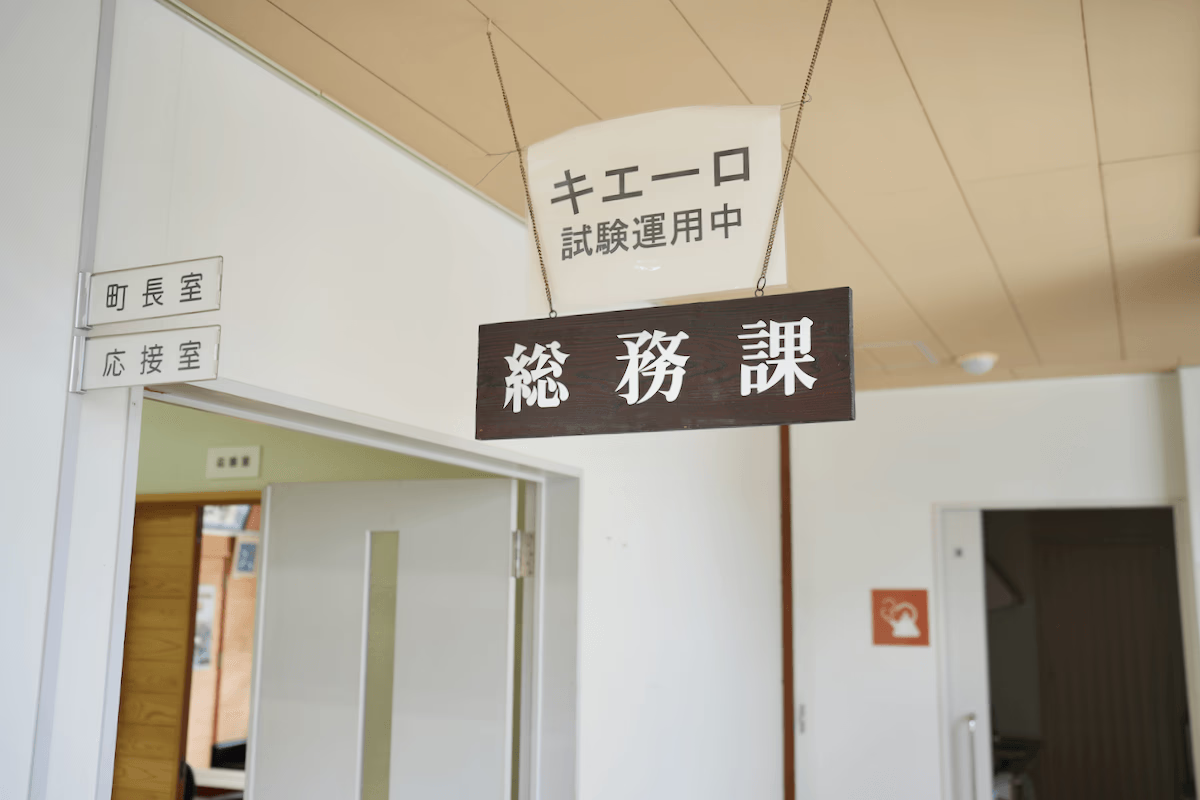
角南が常駐している神山町役場総務課は町長室のとなり。「キエーロ」は木箱などでつくるエコなコンポストです(生ゴミが消えるので「キエーロ」という)
DXの先進自治体を視察しにいく
―― 役場全体としてのDXはどんなふうに進められたのでしょうか。
平嶋:ふるさと納税の業務改善の後、モノサスから「役場にはもっと根本的なDXが必要ではないか」という問題提起がありました。そうなると、総務課だけではなく役場全体に横串を刺してやらないといけないので、各課から1人以上参加するDX推進検討会議がはじまりました。最初は「何のためにDXするのか」を共有して、その後モノサスからDXに取り組む自治体の事例を紹介してもらったんです。
そのひとつに、北海道・北見市さんの「書かないワンストップ窓口」がありました。北見市さんは、2009年から窓口業務の改善を進めてきて、2016年には複数の部署をまたぐ手続きが1つの窓口で完了する、独自の窓口支援システムを構築されたんですね。DXの具体的なイメージをもつために、北見市さんに視察に行こうということになって。せっかく北海道まで行くので、神山町でも取り組みはじめている景観計画に関して先進的な自治体・東川町さんにも行くことにしました。
―― 視察前の準備を入念にされたと伺っています。
平嶋:3回くらい事前勉強会をしました。2018年から2年連続で、杼谷を中心に役場と神山つなぐ公社のメンバーでオーストリアに視察に行ったとき、事前に綿密な勉強会をしていたと聞いたので同じ手法を取ろうと思いました。わざわざ行って、メディアを見ればわかることばかり聞くのではもったいない。基礎知識をインプットした状態であらかじめ質問も考えておいたほうが時間を有効に使えますから。
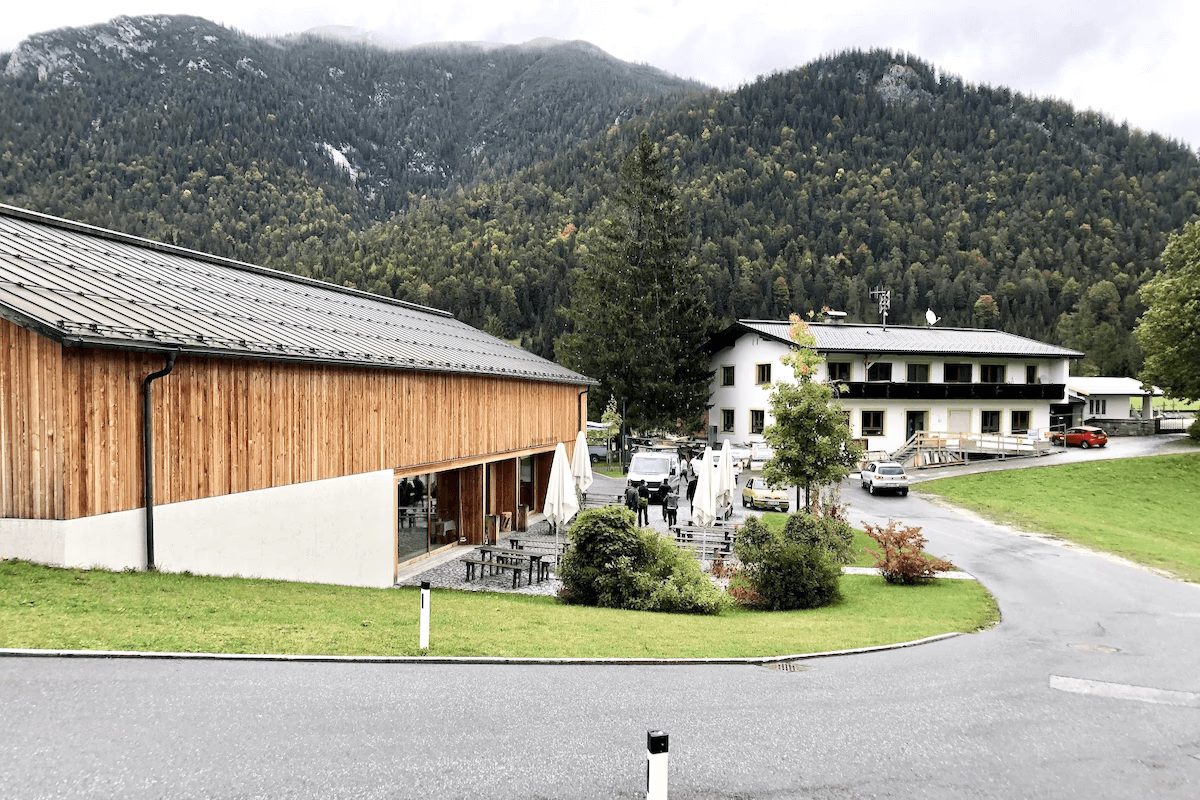
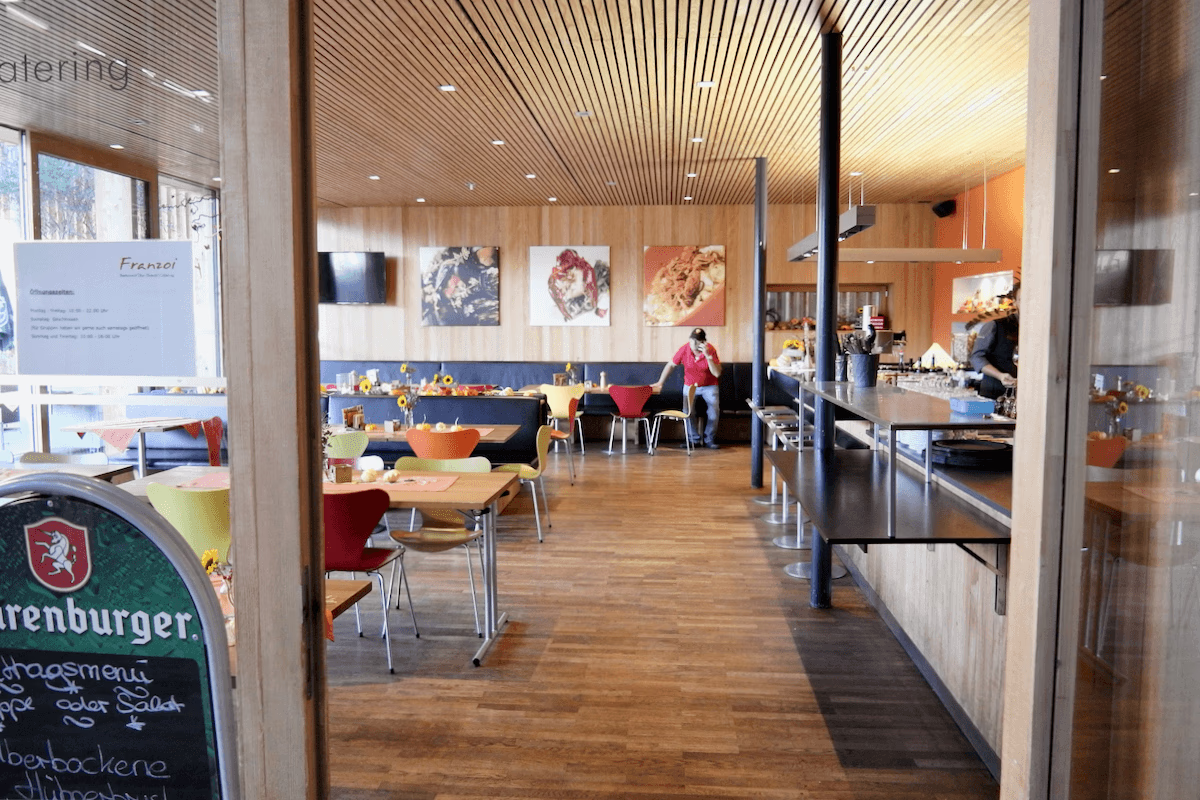
2018年にオーストリア視察で訪れた農山村・シュタインベルクアムロファンの庁舎。庁舎内にカフェがあり地域に開かれている
―― 勉強会を経てどんなことを聞いてみたいと思われたんですか?
平嶋:DXに関わらず、新しいことをはじめるときに一番のハードルになるのは人なんですよね。「通常の業務が大変だから」「できない」という声が挙がりやすい。北見市さんは20年かけて窓口改善に取り組んでおられて、一定の成果があがって庁舎内の空気が変わるまで苦労があっただろうと推測していました。それをどうやって乗り越えてきたのかを聞いてみたいと思いました。
スモールスタートを増やしていく
―― 今回、視察に参加したみなさんの反応はいかがでしたか。
平嶋:特に、窓口を担当している職員はすごく感動していました。北見市さんも東川町さんも、まちにとって何が必要かをちゃんと分析されている。まちの未来を考えると「これやらないとダメでしょう」という気持ちで、すごく前向きに楽しそうに取り組まれていました。もちろん影では汗も涙も流されているとは思いますけれども。
実は僕、視察に行くのは初めてだったんです。役場同士ですから基本的な業務は変わらないし、新しいことをはじめるときに人がハードルになるのも同じです。それでも、場所と働いている人が変わると、すごく考え方が違うことを生で感じることができて景色が変わったというか。一緒に視察を経験した職員たちもすごく意識が変わってきています。北見市さんで「スモールスタートでいい。何でもいいから自分たちで変えていけばいい」という話を聞いて、帰ってからさっそく月一回くらい集まって「こうなったらいいよね」と話し合っているのを見て、思ったより刺さっていたんだなと思いました。以来、「神山町役場、もっとガンガン視察行こうよ!」っていう価値観に変わりました。
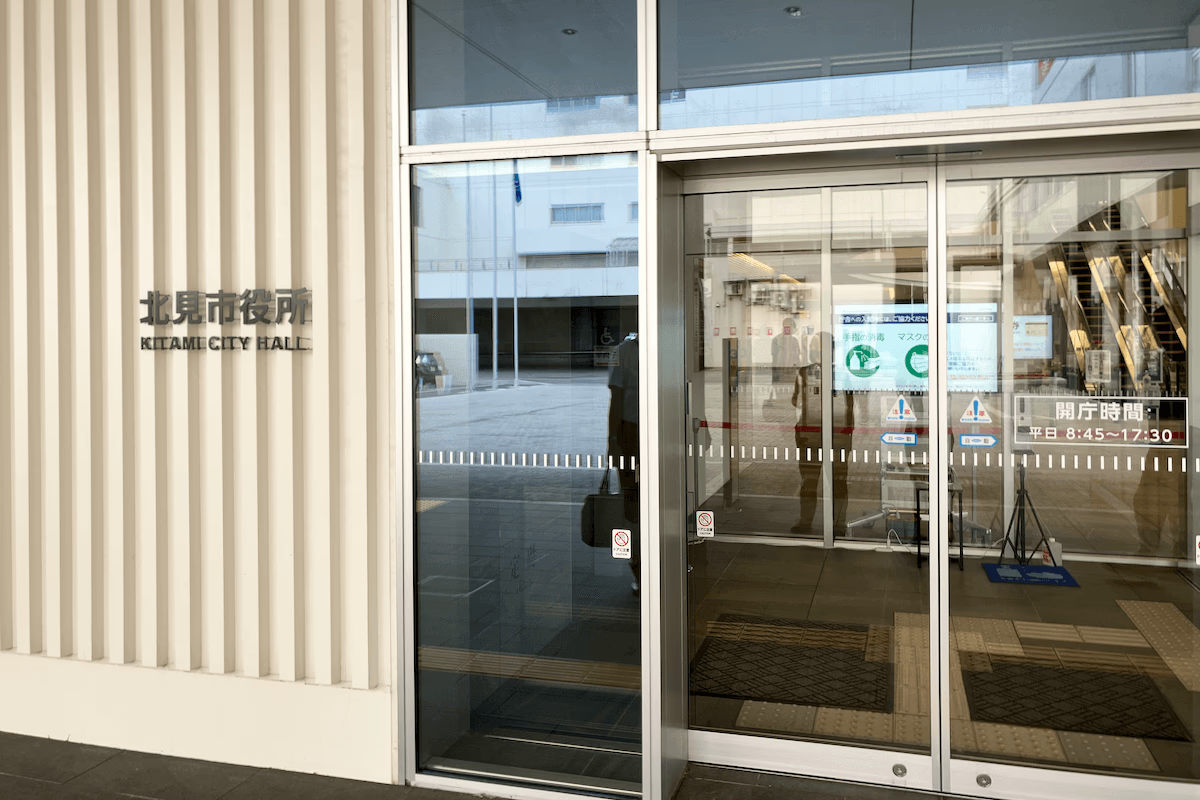
神山町役場のみなさんが視察に訪れた北見市役所
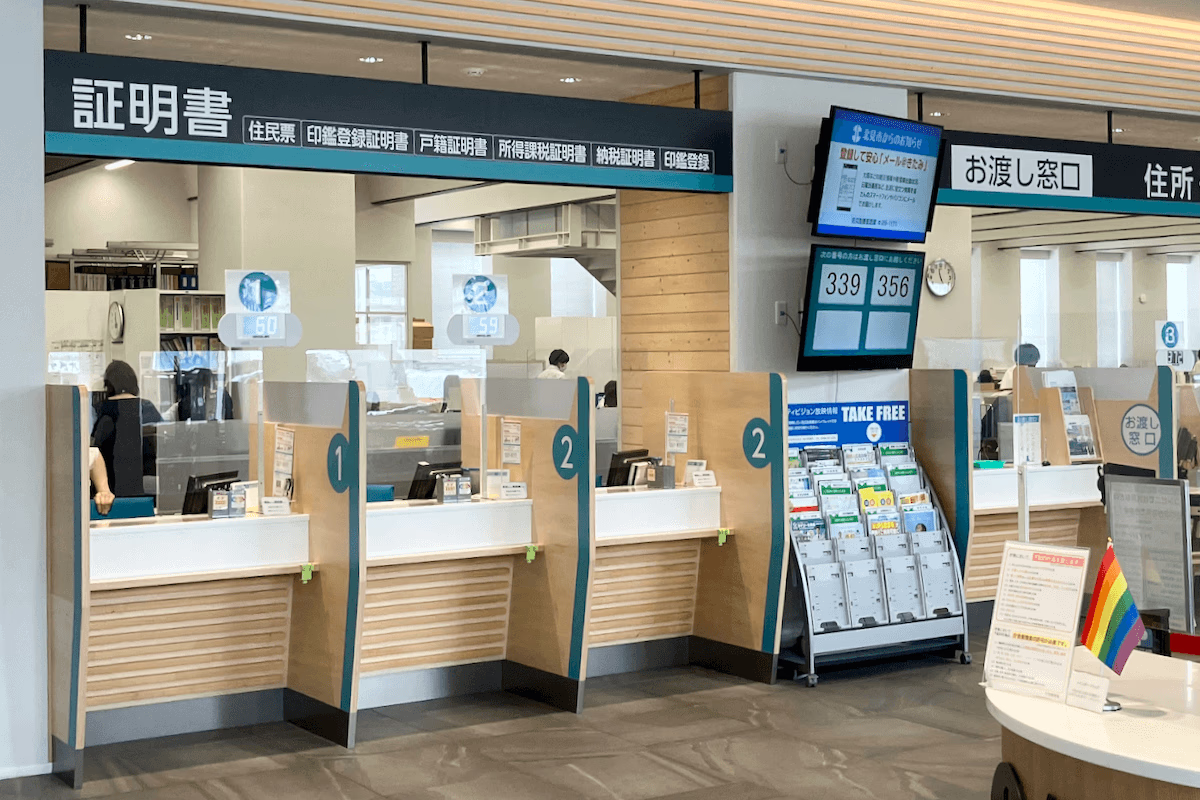
北見市役所窓口
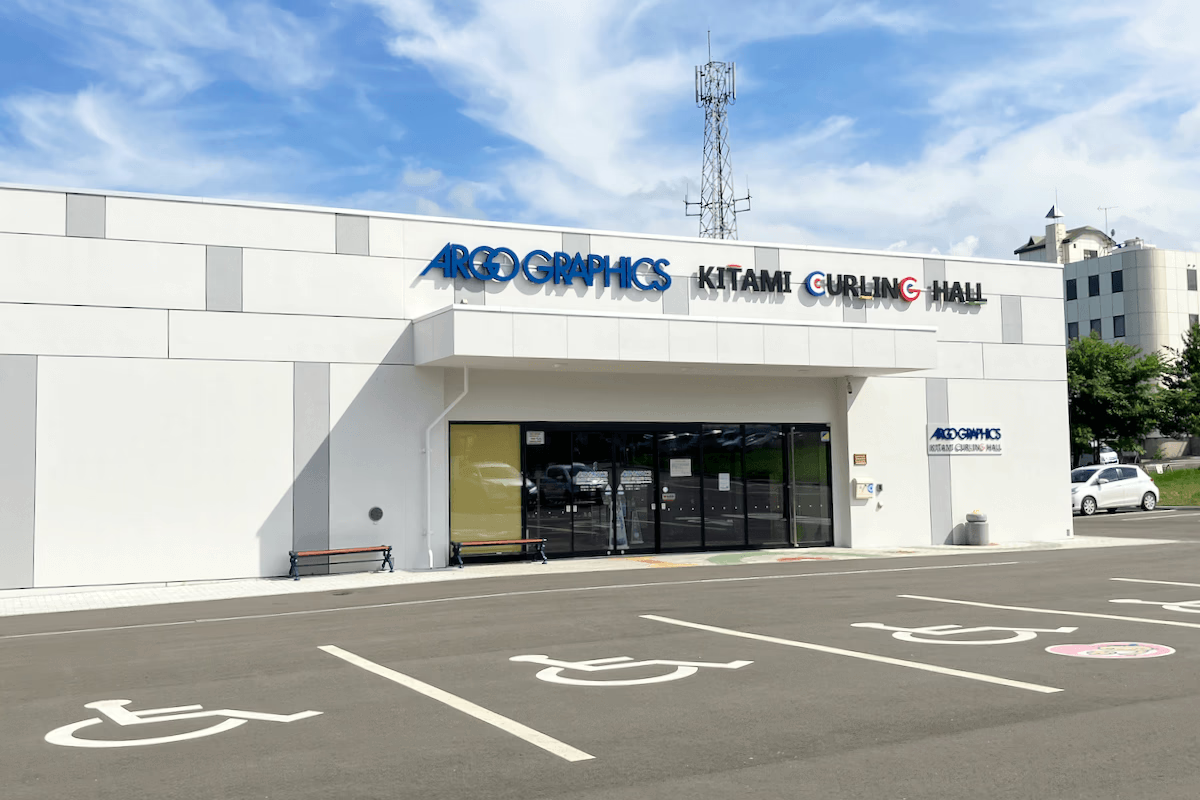
アルゴグラフィックス北見カーリングホール
―― 角南さんはエンジニアとして参考になることはありましたか?
角南:北見市のカーリング施設「アルゴグラフィックス北見カーリングホール」は、北見工業大学冬季スポーツ科学研究推進センターなど地元の大学や企業が連携し、競技力向上支援システムをつくっていました。プロ野球やサッカーリーグのように、コーチの勘や経験をデータ分析で裏付けて伝える取り組みです。視察中も大学生の姿がありました。神山まるごと高専も開校しましたし、神山町でも役場と教育機関、企業が連携して何かをつくる未来もあるかもしれないと思いました。
平嶋:僕は役場側で神山まるごと高専の開校準備を担当していたので、「高専ができたら神山町の可能性が広がる」というのは、言葉としてはわかっていました。でも、すでに実践されている自治体を生で見て「こういうことが起きればいいな」という具体的なイメージが湧きましたね。
神山町ではじまった窓口業務DX
―― その後、神山町でも窓口業務のDXに着手されたそうですね。どんなふうに進んでいますか。
杼谷:平嶋くんが担当するはずだったのですが、この春にまさかの大異動があって、僕が担当することになりました。5月にプロポーザルを終えて契約を交わしたので、これから企業さんと役場職員チームで2024年1月末完成を目指して窓口業務システムを構築していくところです。
角南:北見市の窓口業務支援システムを構築された、北見コンピュータ・ビジネスに基本となるシステムを提供していただいて、神山町に合わせてつくっていきます。僕は役場側のチームをサポートしていきます。まずは、一番手続きが多い住民課で、聞き取りをして用紙に署名をしてもらえば一括して書類を出せるようにする予定です。町民も職員もだいぶ負担が減ると思います。
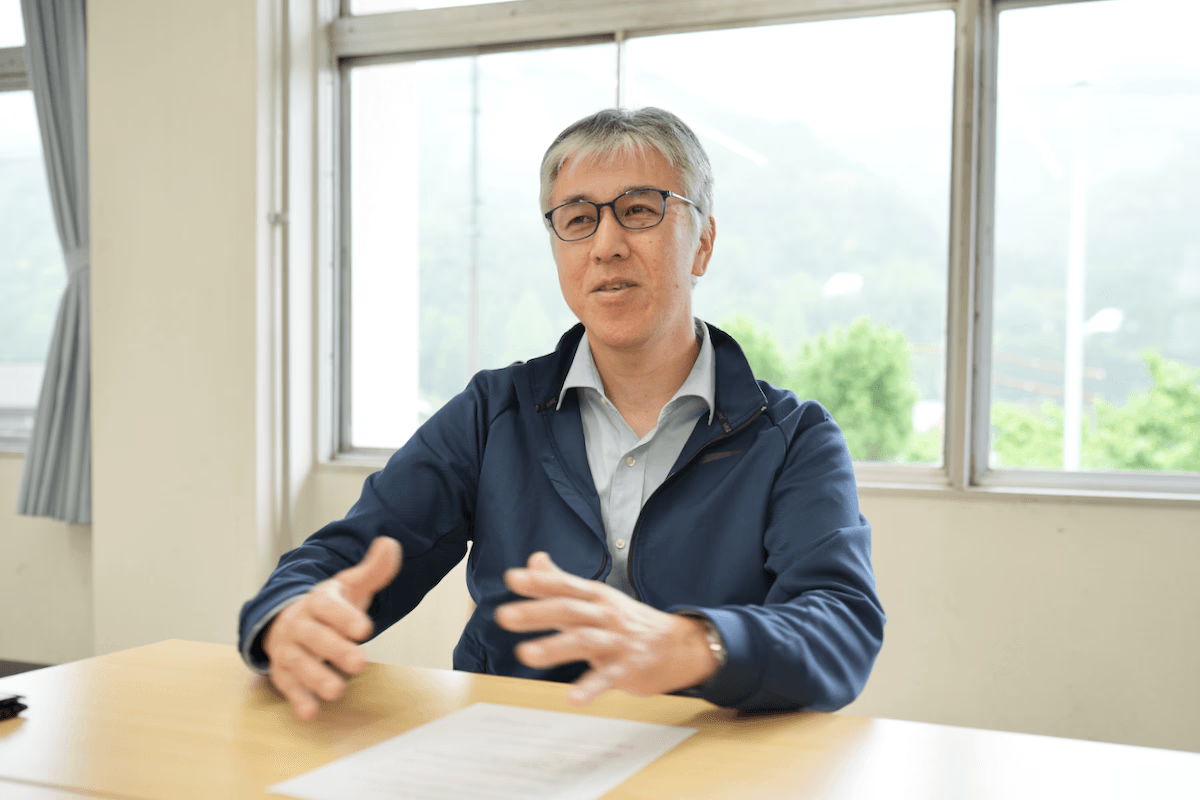
杼谷:今、窓口にいる職員はとてもていねいな対応をしていて、町民のみなさんに褒められることが多いんです。業務改善で余裕が生まれることで、よりていねいな対応をできるようになるだろうなと思います。
―― DXに関連して、これからやりたいことはありますか?
平嶋:企画調整係の仕事のしかたやモチベーションのもちかたは、他の課とはちょっと違うんですね。総務課を離れたことで、「こんな働きかたがあるよ」という価値観や考え方を広めていけるかなと思っています。今年は庁舎内の異動が多かったので、あちこちで引継ぎミーティングがあって「誰がどこにいるかわからない」状態になったんです。思い切って課内で「お互いのカレンダーをオンライン上で共有しましょう」と提案したら、8割くらいの人が使ってくれるようになりました。たぶん、利用率は総務課を超えています(笑)。
杼谷:業務フロー改善とペーパーレス化を進めたいです。文書の保管も大変だし、検索もできませんから。いずれ、庁舎の建て替えをする時期が来ると思いますが、そのタイミングでは変わっていないといけないと思っています。
平嶋:建物が新しくなるだけでは意味がないので、働き方を効率化してそれに適した庁舎をつくるべきですよね。おそらく中心となる総務課に対していろんな意見が出るかもしれませんが、そのときいる課から「こういう考え方のもとで進めているんだよ」「今は大変だけど、これを乗り越えないと大変なことになるよ」と言っていこうと思います。
角南:任期は3年、あと半分くらいあるので、DXの土台をしっかりつくるところまでやりたいですね。
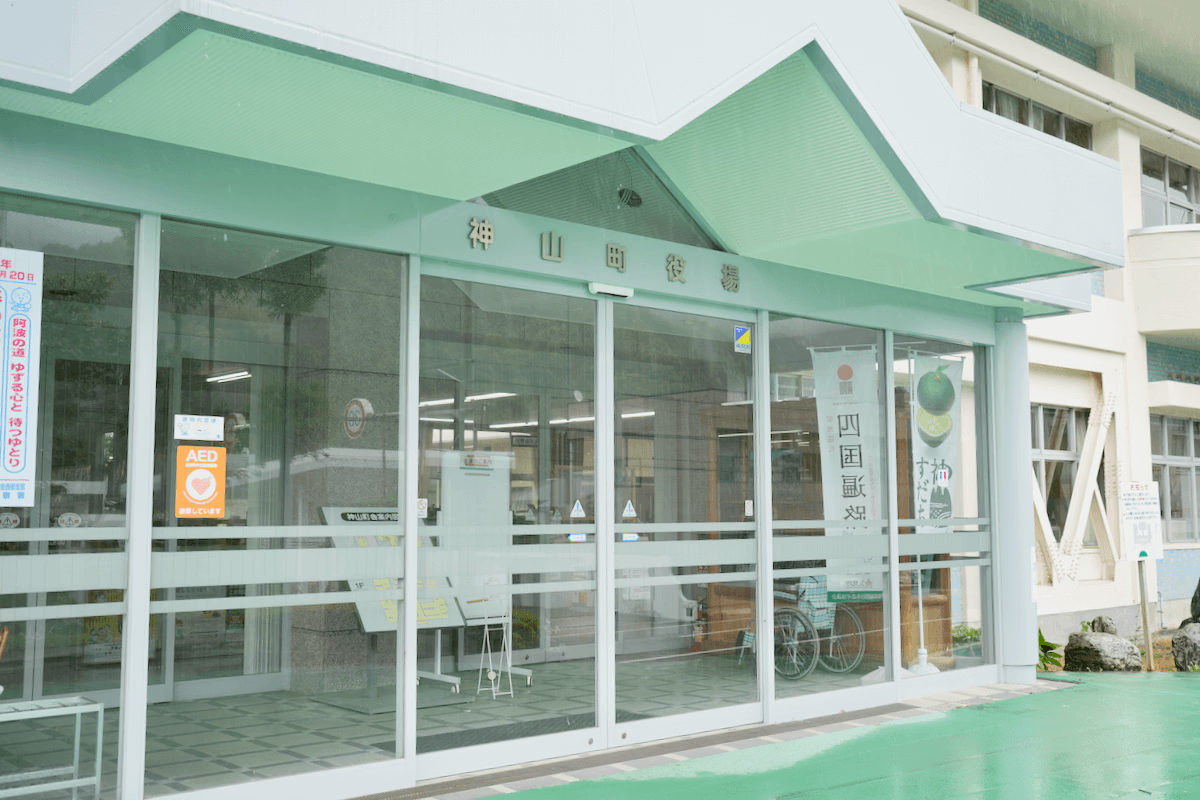
現在の神山町役場庁舎
役場の仕事は「自分ごと」として取り組める
―― 地域活性化起業人制度で、企業の人と一緒にお仕事をされていかがでしたか?
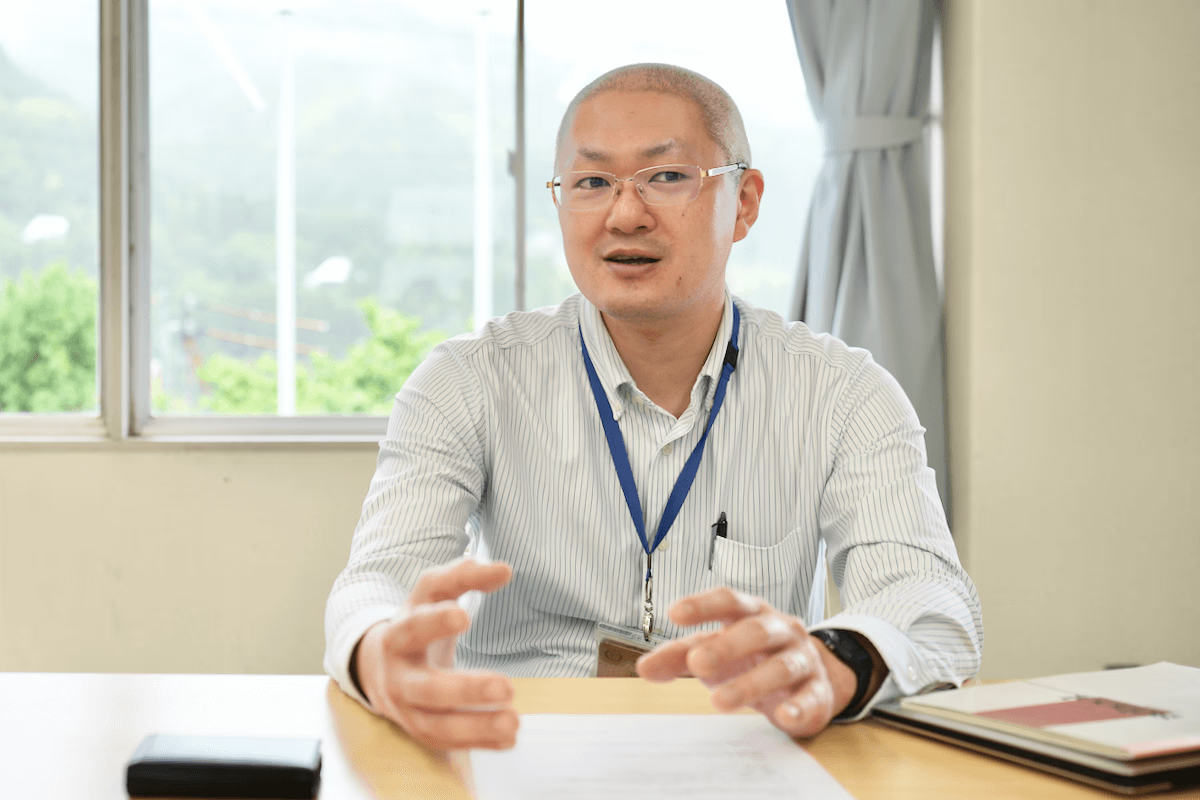
平嶋:新鮮でした。役場の仕事を民間の方が見ると、「なんでこんなふうにやっているの?」「これは変えられないの?」と思われるんですね。特に印象に残っているのは、ミーティングで林さんに「民間では、そんなフローで仕事していたらクビだよ」とバサッと言われたこと。角南さんからも「そもそも、なんで変えようとしないんですか?」と疑問を投げかけられました。僕としては、ずっと長いことそのやり方をしてきたし、他のやり方を知らないし、「変える」という選択肢がそもそもなかったんですよ。「変えられるんじゃないか?」と思えるのであれば、変えるためのハードルを見極めて、乗り越える方法を考えられる。1〜2年DXに関わって、そういう視点をもてるようになりました。
杼谷:役場の職員って外のことを知らない人が多いんですよ。違う世界を見聞きすると、すごく新鮮に思えたり、「なんでうちではできていないんだろう?」と疑問に思ったりします。役場からどんどん外に出ていろんなことを見て知って、自分たちと比較できる人材育成が必要だよなと思います。
―― 杼谷さんは、神山つなぐ公社の代表理事として神山町の地方創生を推進する側に立って、新しいものごとをつくってこられました。どうして、変化を起こす側になれたのですか?
杼谷:なんでですかね?ひょっとしたら、若いときに広報担当をしていたので、神山アーティスト・イン・レジデンスなどNPO法人グリーンバレーの周りで起きていることを一緒に見てきたというのはあるかもしれません。グリーンバレーの代表理事だった大南信也さんは同じ集落の“近所のおっちゃん“ですし、他の理事たちもみんなよく知っている人たちです。移住してきた人たちともどんどんつながりができていました。創生戦略をつくるときは、役場のなかからけっこう職員を引っ張り出したりしましたね。
―― 角南さんにとって役場でのお仕事は、今まで経験してきた民間企業の案件と比べて違いはあったのでしょうか。
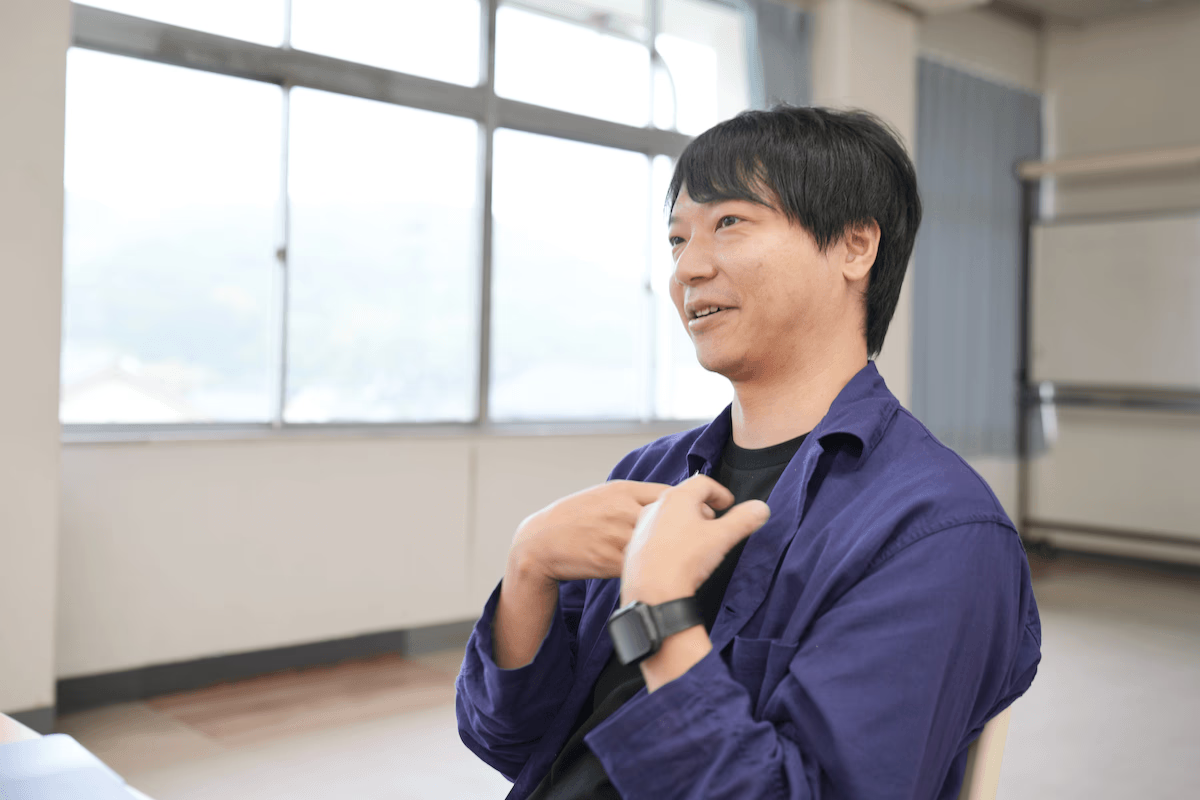
角南:僕自身が神山町民という「当事者」でもあることが一番違ったと思います。今までWebの仕事をしてきましたが、自分の仕事が自分の住むまちに直接的な影響を与えることはなかったんです。神山町の仕事では、ふるさと納税の事務手続きを改善すれば役場の職員さんが喜んでくれるし、窓口改善DXが実現すれば自分を含めた町民の書類申請が楽になります。自分の住んでいるまちの町民サービス向上につながっているところがすごく面白いなと思いました。
杼谷:大事なことですね。僕も自分たちの暮らしが良くなるようにと思いながら役場の仕事をしています。
―― みなさん、ありがとうございました!また、神山町のDXが次の段階に進んだら、ぜひお話聞かせてください。
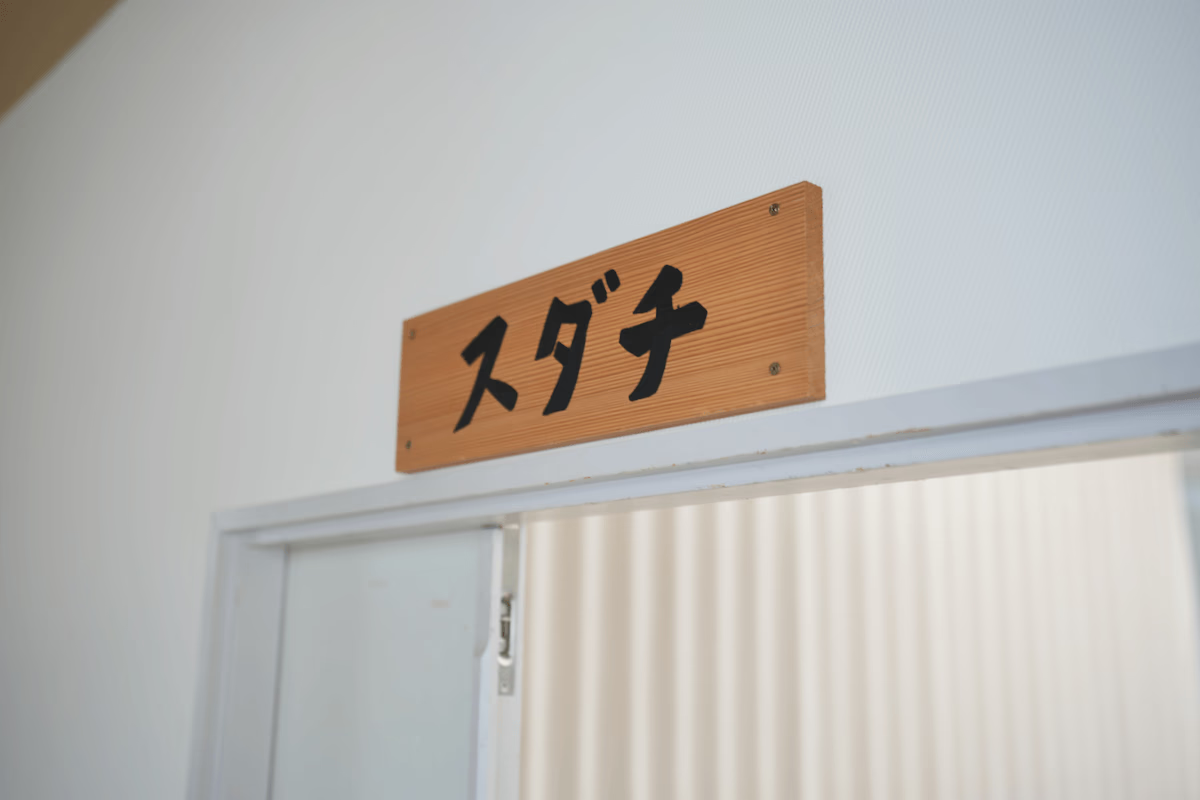
座談会は、神山町役場の会議室「スダチ」で行いました。
